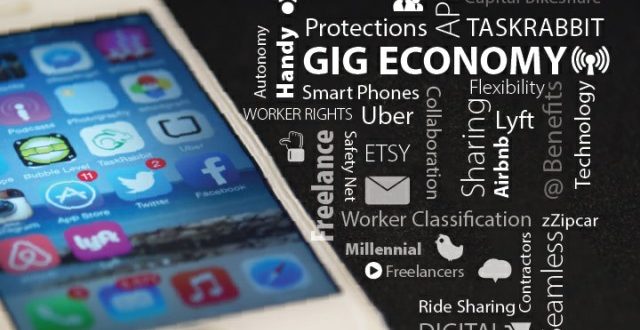Believe it or not, the UK is currently experiencing ‘full-employment.’ That is, while 4.7 percent of working age people are officially unemployed, most are what economists used to call ‘frictional’ – they are moving between jobs or moving between work and education.
At face value, this is good news. Indeed, the government has been keen to play up the headline unemployment figures as proof that austerity is working. But there is a problem. According to Will Martin at Business Insider:
“If the economy was working as theory suggests it should mean employees would be pushing their bosses for higher pay. Essentially when the jobs market is booming, workers know that they can move to another job if they are unable to get a raise at their current place of work.”
Instead, real wages are falling. The Resolution Foundation reports that:
“Around 40 per cent of the workforce are in sectors where pay is falling in real terms… The troubling picture on pay has come despite another good performance on jobs, with fast growth in hours worked, employment remaining at a record high and unemployment falling by 45,000.”
The origins of the problem lie in the shift from manufacturing to service jobs; which now account for 80 percent of UK GDP. In essence, the UK has offshored high-paying jobs to developing countries and replaced them with low-paying service work. However, while this explains the general trend toward lower pay, it does not fully account for today’s low pay. For Martin, there has been a more important development:
“There has also been another big, more recent shift, a shift towards the so-called “gig economy,” a class of workers who are technically self-employed and paid per “gig,” typically working in service-style roles like deliveries and taxi-driving, often without set hours and with work assigned via a smartphone app.”
These are the people that Chancellor Phillip Hammond recently attempted (and failed) to hammer with additional taxes in the mistaken belief that the UK Treasury was missing out on a self-employment bonanza. This may be true of the upper echelon of self-employment – professionals like lawyers and doctors – but it is far from true for Britain’s growing army of low paid gig workers who are obliged to sacrifice their employment rights – including the “right” to be paid a living wage – in order to work for the real beneficiaries of the gig economy – the (often overseas) corporations that own the web sites.
For thousands of workers, the gig economy is analogous to the medieval feudal system in which peasants gave a share of their produce to a landlord as a rental payment for the land they worked. In the emerging economy, digital peasants will give a share of the income they generate to their platform-owning digital landlords, who will make massive profits simply by renting space on their sites. And since those sites are global, any demand for better pay and conditions will result in gigs going to someone else – possibly in a part of the world where standards of living are much cheaper. As Martin explains:
“Companies in the gig economy like Uber, Deliveroo, and Hassle set their rates centrally and given that workers are effectively their own bosses, asking for a raise and in turn stimulating wage growth that way is virtually impossible.
“For example, the only way for a driver working for Uber to make more money without simply working longer hours is for them to somehow get Uber to increase their centrally set rate of pay for drivers, effectively giving all drivers. This does happen, but only very rarely.”
In an important way, the development of the gig economy is merely a continuation of the offshoring trend that began in the 1980s. As Business Insider’s Rob Price observes:
“Brits are happy to reap the benefits of the gig economy and on-demand startups — but they don’t want to actually work in it themselves.”
As consumers, we have all been lured into the benefits of, for example, cheap trainers or smartphones manufactured by child labour in third world sweatshops. But as employees, none of us wanted to experience the low pay and sweatshop conditions for ourselves. The – probably unstoppable in the short-term – gig economy merely brings those chickens home to roost.
According to McKinsey more than five million of us are employed in some way in the gig economy. For the moment, a large part of that is part time, and supplements other employment. But a growing number of us are full-time gig economy workers whose precarious income is entirely dependent upon the whims of the new class of global digital landlords whose sole purpose is to maximise the profit they make from our work. And this, ultimately, will destroy the economy. Because a low pay economy can provide neither the taxes nor consumer spending that is needed to dig the UK economy out of its post-2008 hole.




